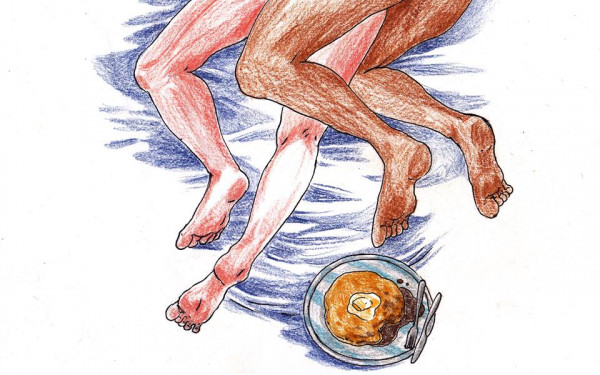No Means No 101
2110 Centre Teaches Froshies About Consent
For the first time, Concordia frosh leaders received specialized training on sexual assault and consent this year.
The presentations are an initiative of the 2110 Centre for Gender Advocacy, which provided the service to frosh leaders from the Arts and Science Federation of Associations, the Commerce and Administration Student Association and the Engineering and Computer Science Association.
The initiative was partly driven by complaints made following last year’s frosh.
“Students are affected [by sexual assault] more than the general population, particularly when encouraged to drink excessively,” said Julie Michaud, the 2110’s Administrative Coordinator.
The presentations were aimed mostly at defining consent, debunking myths regarding sexual assault, teaching froshies how to recognize when someone is withholding their consent and raising questions about the effects of heavy alcohol consumption on consent.
Last year, AFSA claimed to have received unofficial complaints from female frosh participants about the behaviour of male students, particularly in residences.
“There were people who were acting—I don’t want to say forceful—but not respecting boundaries,” said AFSA President Caroline Bourbonnière regarding some of the questioned sexual behaviour.
As a result, AFSA approached 2110, which was already preparing the presentations, and requested that the Centre provide ASFA frosh participants and leaders with a presentation on consent and sexual assault.
Frosh is now over, and, according to Bourbonnière, AFSA has not yet received any similar complaints.
Despite the presentations’ apparent success, the Centre still faces some logistical problems.
“Ideally, we would like to spend two to three hours, because it is a complex issue, but these groups are only giving us 15 to 30 minutes,” said Michaud. “At McGill, every student who lives in residence has to attend a three-hour presentation on consent and sexuality.”
The presentations have been a successful step towards the larger aim of the Centre to press the Concordia administration into reforming its policy on sexual assault prevention and support resources on campus, as well as providing space for a sexual assault centre.
“Baby steps are important so there’s a foundation for strong policy change,” said CSU VP Academic Lucia Gallardo, who put the policy reform at the forefront of her campaign platform.
The 2110 negotiations with the university regarding the sexual assault centre have been relatively fruitless so far however. Michaud claims that the Dean of Students has expressed general support, but the university appears unwavering in its opinion that there is no space for the centre.
The need for a sexual assault centre is made all the more pressing by the fact that, according to Michaud, the recourse available to complainants is not well-suited to their needs.
Michaud and Gallardo both cite as an example Concordia security guards’ lack of training in dealing with survivors of sexual assault.
“Follow-up starts when someone reports an incident, but our security guards aren’t trained on how to talk to victims [of sexual assault],” said Gallardo. “Support resources exist, but you have to already know where to look for them.”
The 2110 Campaigns Coordinator Bianca Mugyenyi feels the university owes this much to its students.
“[A sexual assault centre] is well within the means of the university,” said Mugyenyi. “It is the responsibility of the university to make sure its students are safe.”

_900_598_90.jpg)



_1_600_375_90_s_c1.jpg)
